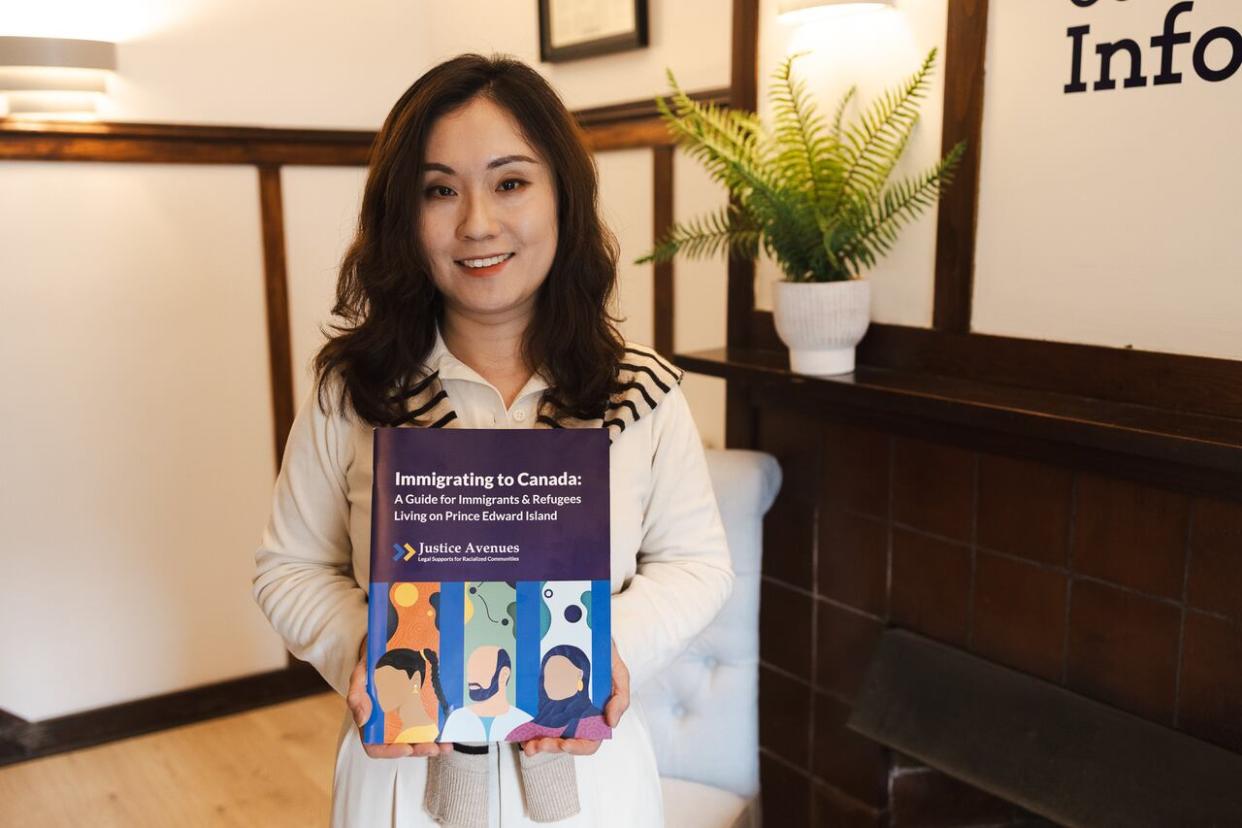New immigration guide aims to make adjusting to Island life a bit easier

A new guide is available to help immigrants and refugees on P.E.I. better understand the supports and resources available to them.
"Understanding the immigration process and settling in a new country can be very challenging," said Nicole Li of Justice Avenues, the Community Legal Information program that published the guide.
The program funded by Justice Canada provides legal support to racialized communities on the Island.
Li says the guide answers common questions about immigration law, criminal law, health care, family law, and employment rights.
Li went through the immigration process herself when she came to Canada 20 years ago, first as an international student, then as a temporary foreign worker before becoming a permanent resident. She said a guide like this would have helped her.
"This isn't just for brand-new newcomers," she said. "[It's] also for some of the existing newcomers who maybe have been here for a couple years. They're still not 100 per cent familiar, for example, with the justice system here in Canada."
To develop the guide, Li says Justice Avenues has taken feedback from its clients and worked with an advisory committee made up of members from three local groups: BIPOC USHR (Black, Indigenous, and People of Colour United for Strength, Home, Relationship), Immigrant & Refugee Services Association P.E.I. (IRSA), and the Native Council of P.E.I.
Information in plain language
Helping newcomers figure out what rights they have as employees in Canada is one of the purposes of the guide.
"Obviously in each country, they have their own policies and rules in terms of employment. So, to me, it's very important for [newcomers] to understand how things work in Canada," said Li.
For example, a newcomer might not be aware that an employer can't have an employee deported and isn't allowed to threaten to do so.
The guide is available in seven languages: English, Arabic, French, Punjabi, Simplified Chinese, Spanish and Vietnamese.
Li said the organization did a needs assessment and decided those were the languages that would benefit the Island's racialized communities the most.
The intention is to use plain language, to make the information as accessible as possible to people who need it.
The guide is available on the Justice Avenues website, and Community Legal Information also has paper copies available on request at its Charlottetown office, located at 53 Grafton St., Suite 202.

